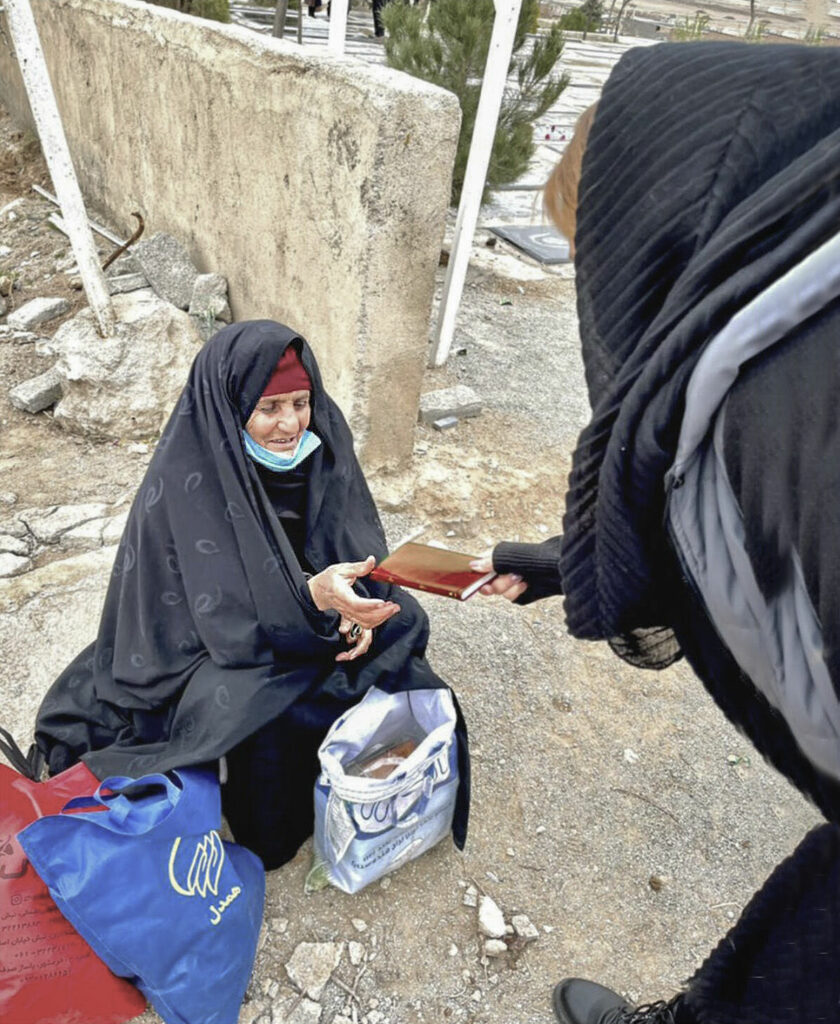Is There Hope for Iran and North Korea?
President's Letter
Insights From Cole Richards, VOM President, On the impact of god’s word
The following reflection is written by Cole Richards, President of The Voice of the Martyrs. In this insightful passage, he reflects on the impact of the Bible on the global body of Christ.
Most of us are like Timothy, who from childhood was “acquainted with the sacred writings, which are able to make you wise for salvation through faith in Christ Jesus” (2 Timothy 3:15). We have had access to Scripture all our lives. But hundreds of millions around the world have not had a chance to hear of their Savior, Jesus Christ our Lord, and millions of those who have come to Christ in restricted nations are still waiting for their first Bible.

Our enemy is the father of lies (John 8:44), and among his most powerful deceptions are the false hopes he designs to resemble God’s truth. Iran’s 1979 Islamic Revolution is one example of such a deception. The Iranian people, convinced of the virtue in rejecting secularism, embraced the false hope of an Islamic theocracy. Since then, the Iranian people have suffered the failures of a false religion for four decades. Islam, like other deistic or monotheistic beliefs that deny Christ, cannot save. Our Lord Jesus Christ is the way, the truth and the life (John 14:6), and Islam’s rejection of Christ has left its adherents lost without the Way, oppressed by falsehood without the Truth and in danger of eternal death without the Life. God’s Holy Word is Iran’s true hope.
It is a common practice for North Koreans to bow before 70-foot statues of their former leaders. They are not merely showing respect; North Koreans are taught that the Kim family patriarchs, beginning with Kim Il Sung, have become gods. The current regime, led by Kim Jong Un, the third Kim in this succession, goes to astonishing lengths to restrict access to outside information — especially the truth of God’s Word. We respond by using several innovative methods to smuggle Bibles and broadcast Scripture across their border.
We may easily fail to appreciate the plight of the lost in restricted nations. Their hearts cry out for their Creator and long for knowledge of their Savior just as ours do, but unlike us they do not have access to knowledge about Christ. The real problem in these nations is more profound than bad political leadership. Their people, thirsting for truth, are left to drink from broken cisterns (Jeremiah 2:13) such as Iran’s radical Islam and North Korea’s Juche, a cult of subservience and leader-worship.

We must never rest as long as lost people in restricted nations — like Hossein, above — remain hopeless, without access to the truth that we have in abundance. And we must persevere until every Christian in a restricted nation has a Bible.
